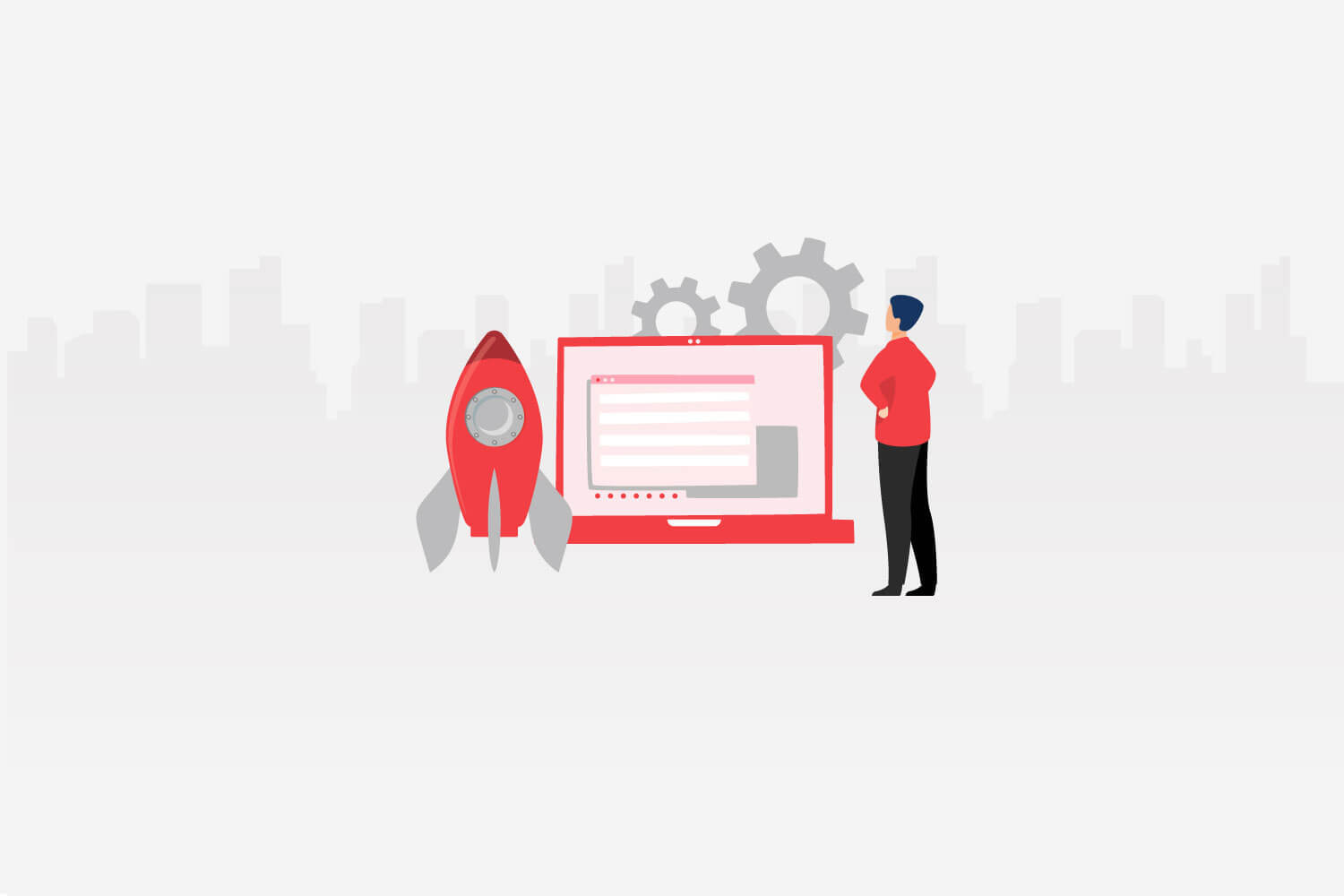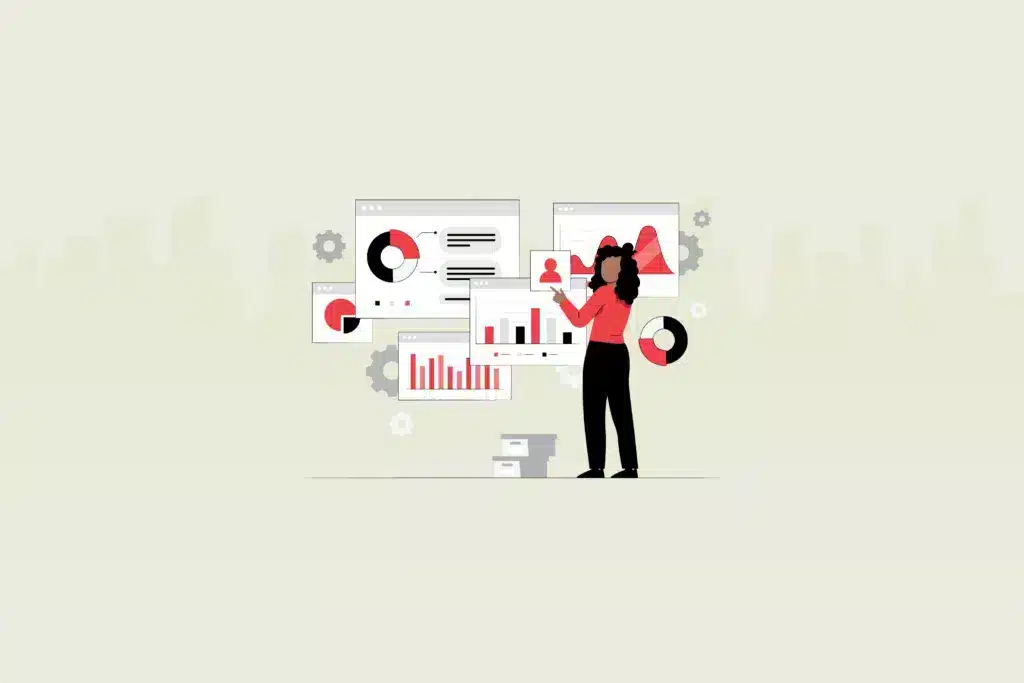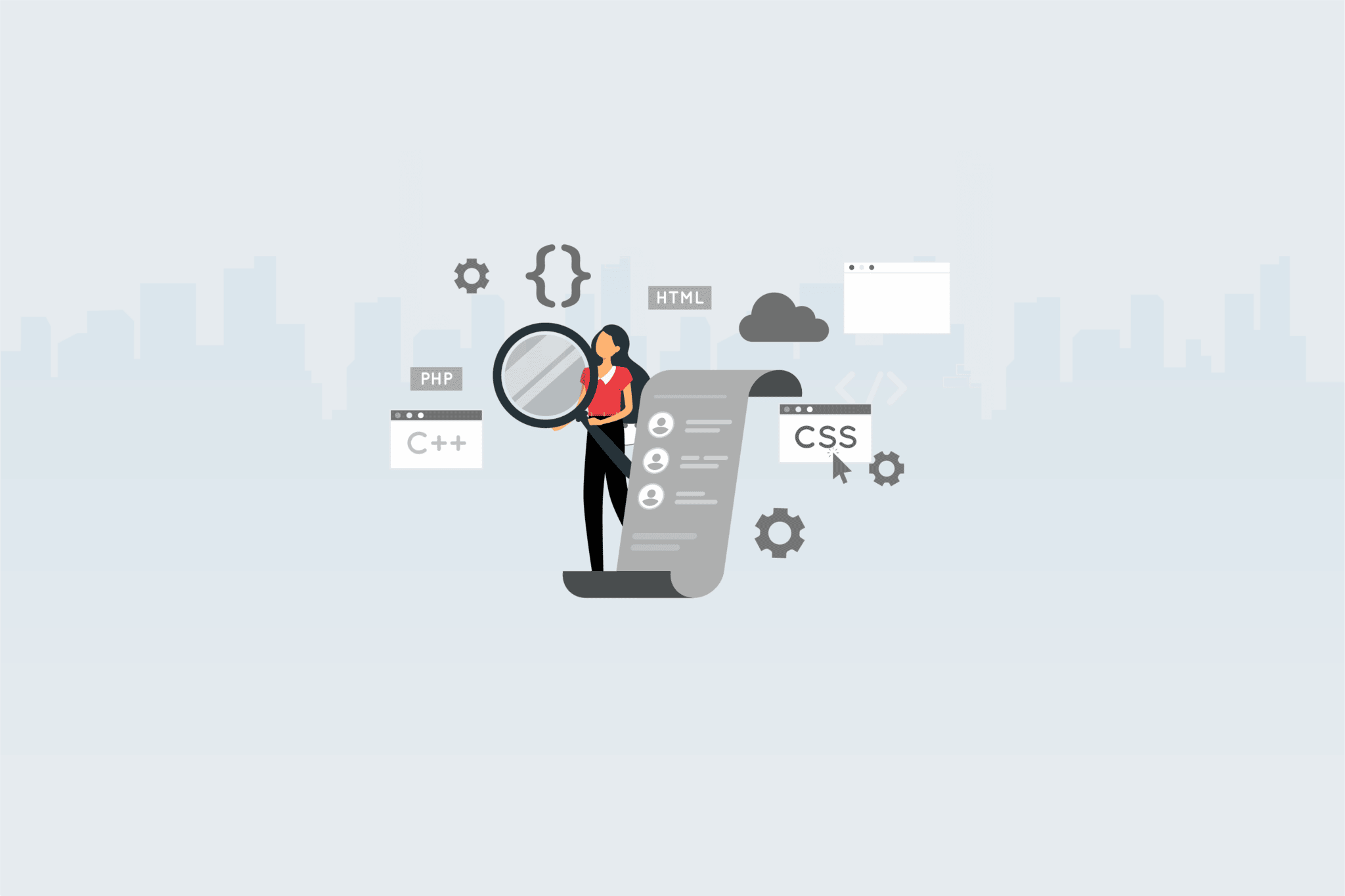The role of an Employee Engagement Coordinator has emerged as a crucial component in organizations worldwide, reflecting the growing recognition of the importance of fostering a positive and motivated workforce. In today’s competitive business landscape, organizations are increasingly investing in strategies to enhance employee engagement, realizing its direct correlation to productivity, talent retention, and overall organizational success.
According to recent analytics, the demand for Employee Engagement Coordinators has witnessed a significant upward trend, as companies strive to create a workplace culture that fosters employee satisfaction, collaboration, and continuous development. HR professionals and CXOs play a pivotal role in understanding and capitalizing on this trend, recognizing the need to hire professionals who can strategically drive employee engagement initiatives. As we delve into the interview process for the Employee Engagement Coordinator position, let us explore the key aspects and qualities essential for success in this ever-evolving landscape.
Here are the top 60 Employee Engagement Coordinator interview questions to ask job applicants:
15 general interview questions for the Employee Engagement Coordinator
- Can you share your understanding of employee engagement and its importance within an organization?
- Describe your experience in designing and implementing employee engagement programs. What strategies have you found most effective?
- How would you assess the current level of employee engagement within an organization? What tools or methods would you use?
- Can you provide examples of initiatives you have implemented to improve employee morale and motivation?
- How would you approach measuring the success and impact of employee engagement programs?
- How do you ensure that employee engagement initiatives align with the organization’s overall goals and values?
- Share a situation where you encountered resistance or challenges in implementing an employee engagement program. How did you handle it?
- How do you foster open communication and collaboration among employees to enhance engagement and team dynamics?
- What strategies do you employ to encourage employee feedback and ensure their voices are heard?
- How do you address and mitigate employee disengagement or burnout?
- How do you involve managers and leadership in promoting employee engagement? Can you provide examples of how you have collaborated with them?
- How would you approach building relationships with employees at all levels of the organization to understand their needs and concerns?
- Share your experience in conducting employee surveys or feedback sessions. How do you ensure confidentiality and encourage honest responses?
- Can you give an example of a successful employee engagement project you have led from start to finish? What were the outcomes?
- How do you stay informed about current trends and best practices in employee engagement? Can you provide an example of how you have implemented a new idea or innovation in this field?
5 sample answers to general interview questions for the Employee Engagement Coordinator
- Can you share your understanding of employee engagement and its importance within an organization?
look for: Look for candidates who demonstrate a clear understanding of employee engagement and can articulate its significance in driving organizational success.
Example answer: “Employee engagement is the emotional and intellectual commitment employees have towards their work, organization, and its goals. It involves creating a positive work environment where employees feel valued, motivated, and connected to their roles and the organization as a whole. Employee engagement is crucial as it directly impacts productivity, employee retention, customer satisfaction, and overall business performance. By fostering a culture of engagement, organizations can unlock the potential of their workforce and achieve sustainable growth.”
- Describe your experience in designing and implementing employee engagement programs. What strategies have you found most effective?
look for: Look for candidates who have hands-on experience in developing and implementing employee engagement initiatives, and who can discuss effective strategies they have employed.
Example answer: “In my previous role, I led the design and implementation of various employee engagement programs. One strategy that proved highly effective was establishing cross-functional employee-led committees to drive engagement initiatives. These committees fostered collaboration and inclusivity, allowing employees from different departments to contribute their ideas and suggestions. We also organized regular team-building activities, such as off-site retreats and volunteering opportunities, to strengthen interpersonal connections and boost morale. Additionally, I implemented a recognition program that acknowledged and rewarded employees for their exceptional contributions, leading to increased motivation and a sense of appreciation.”
- How would you assess the current level of employee engagement within an organization? What tools or methods would you use?
look for: Look for candidates who can demonstrate their ability to assess and measure employee engagement levels effectively using appropriate tools and methods.
Example answer: “To assess employee engagement, I would utilize a combination of quantitative and qualitative measures. One method is conducting employee surveys that include questions related to job satisfaction, motivation, and overall engagement. These surveys can be supplemented with focus groups or individual interviews to gather more detailed feedback and insights. Additionally, I would analyze key metrics such as employee turnover rates, absenteeism, and productivity levels. By leveraging data from multiple sources, I can gain a comprehensive understanding of the current level of employee engagement and identify areas for improvement.”
- Can you provide examples of initiatives you have implemented to improve employee morale and motivation?
look for: Look for candidates who have implemented specific initiatives aimed at enhancing employee morale and motivation, and who can discuss the outcomes and impact of those initiatives.
Example answer: “In a previous organization, I implemented a peer recognition program called ‘Shining Stars.’ This program allowed employees to nominate their peers for exceptional work and accomplishments. We introduced a monthly recognition ceremony where the nominated employees were publicly acknowledged and rewarded. This initiative not only boosted morale and motivation but also fostered a culture of appreciation and camaraderie. As a result, we observed increased employee satisfaction, improved team dynamics, and a higher level of discretionary effort from employees.”
- How do you foster open communication and collaboration among employees to enhance engagement and team dynamics?
look for: Look for candidates who emphasize the importance of communication and collaboration in driving employee engagement, and who provide concrete examples of strategies they have employed.
Example answer: “I believe open communication and collaboration are essential for fostering employee engagement and positive team dynamics. In my previous role, I implemented a monthly town hall meeting where employees from all levels of the organization could openly discuss ideas, challenges, and suggestions. Additionally, I introduced collaborative tools and platforms, such as online forums and project management software, to facilitate real-time communication and encourage cross-team collaboration. By promoting transparency, active listening, and knowledge sharing, we were able to create a supportive environment where employees felt empowered and valued, resulting in improved engagement and stronger team relationships.”
15 behavioral interview questions for an Employee Engagement Coordinator
- Tell me about a time when you successfully designed and implemented an employee engagement program. What was your approach, and what were the outcomes?
- Describe a situation where you faced resistance from employees or stakeholders while implementing an employee engagement initiative. How did you handle it?
- Can you share an example of a creative solution you developed to address a specific employee engagement challenge within an organization?
- Tell me about a time when you had to gather employee feedback and use it to drive meaningful changes in employee engagement. What methods did you employ, and what were the results?
- Describe a situation where you identified a gap in employee engagement and developed a comprehensive plan to address it. How did you measure the success of your plan?
- Share a time when you successfully collaborated with managers and leaders to align employee engagement initiatives with the organization’s goals and values. What strategies did you use to gain their support?
- Tell me about a difficult conversation you had with an employee regarding their disengagement or performance issues. How did you approach the conversation, and what was the outcome?
- Describe a situation where you had to manage multiple employee engagement projects simultaneously. How did you prioritize and ensure the successful execution of each project?
- Can you provide an example of how you used data and analytics to assess employee engagement levels and make data-driven decisions to improve engagement?
- Tell me about a time when you had to deal with a highly disengaged team. How did you approach the situation, and what actions did you take to improve their engagement?
- Describe a challenging employee engagement situation you faced and how you leveraged your interpersonal skills to build rapport and gain buy-in from employees.
- Share a time when you had to adjust an employee engagement program or initiative based on feedback or changing circumstances. How did you handle the adaptation, and what were the results?
- Tell me about a time when you organized an event or activity aimed at enhancing employee engagement. How did you plan, execute, and evaluate the impact of the event?
- Describe a situation where you had to address employee burnout and implement strategies to promote work-life balance and well-being. What approaches did you find most effective?
- Share an example of a time when you successfully measured the return on investment (ROI) of an employee engagement program. How did you track and demonstrate the program’s impact on the organization?
5 sample answers to behavioral interview questions for the Employee Engagement Coordinator
- Tell me about a time when you successfully designed and implemented an employee engagement program. What was your approach, and what were the outcomes?
look for: Look for candidates who demonstrate their ability to effectively plan, execute, and measure the success of employee engagement programs.
Example answer: “In my previous role, I led the design and implementation of an employee mentorship program aimed at fostering career development and engagement. My approach involved conducting a needs assessment to understand employees’ interests and pairing them with mentors based on their goals and skills. I developed a structured program with regular check-ins, training sessions, and networking events. The outcomes were highly positive, with participants reporting increased job satisfaction, skill development, and a stronger sense of belonging within the organization.”
- Describe a situation where you faced resistance from employees or stakeholders while implementing an employee engagement initiative. How did you handle it?
look for: Look for candidates who can effectively navigate challenges and overcome resistance by employing communication, influence, and problem-solving skills.
Example answer: “During a company-wide change initiative, I encountered resistance from a group of employees who were skeptical about the benefits of the proposed engagement program. To address this, I scheduled one-on-one meetings to understand their concerns and perspectives. Through active listening and empathy, I was able to address their apprehensions and involve them in the decision-making process. By incorporating their ideas and suggestions into the program, I gained their buy-in and successfully implemented the initiative, resulting in improved engagement levels and a more positive outlook among the previously resistant employees.”
- Can you share an example of a creative solution you developed to address a specific employee engagement challenge within an organization?
look for: Look for candidates who can think innovatively and develop unique solutions tailored to address specific engagement challenges.
Example answer: “In a previous organization, we faced low employee participation in company-wide events. To address this challenge, I introduced a gamification element where employees earned points for attending events, participating in activities, and sharing their experiences on social media. These points could be redeemed for rewards and recognition. The creative solution not only increased event attendance and participation but also generated a sense of excitement and friendly competition among employees, ultimately boosting overall engagement levels.”
- Tell me about a time when you had to gather employee feedback and use it to drive meaningful changes in employee engagement. What methods did you employ, and what were the results?
look for: Look for candidates who actively seek employee feedback, demonstrate strong listening skills, and can provide examples of using feedback to drive positive changes.
Example answer: “In my previous role, I implemented an employee survey to gather feedback on the existing engagement initiatives. I also conducted focus group discussions and held one-on-one conversations to dive deeper into employees’ experiences. By analyzing the feedback, I identified areas of improvement and introduced several changes, including flexible work arrangements, enhanced training opportunities, and a revamped recognition program. As a result, employee satisfaction scores significantly increased, turnover decreased, and there was a noticeable improvement in overall engagement levels.”
- Describe a situation where you had to manage multiple employee engagement projects simultaneously. How did you prioritize and ensure the successful execution of each project?
look for: Look for candidates who demonstrate strong organizational and project management skills, as well as the ability to handle multiple projects effectively.
Example answer: “In my previous role, I was responsible for managing several employee engagement projects simultaneously, including wellness initiatives, team-building activities, and communication campaigns. To prioritize, I assessed the urgency and impact of each project, considering the resources available. I then developed a comprehensive project plan, clearly defining roles, responsibilities, and timelines. Regular communication and collaboration with cross-functional teams ensured a successful execution of each project, meeting deadlines and achieving desired outcomes.”
15 personality interview questions for the Employee Engagement Coordinator
- How do you handle stressful situations or high-pressure deadlines while maintaining a positive work environment for yourself and others?
- Describe a time when you demonstrated resilience and perseverance in the face of challenges related to employee engagement. How did you stay motivated and overcome obstacles?
- How do you foster empathy and understanding towards different perspectives and backgrounds within a diverse workforce?
- Can you share an example of a time when you displayed strong communication skills to build relationships and effectively convey employee engagement initiatives to a wide range of stakeholders?
- In your opinion, what are the essential qualities of an effective Employee Engagement Coordinator, and how do you embody those qualities?
- How do you stay updated on current trends, best practices, and emerging technologies in the field of employee engagement? Can you provide an example of how you have applied this knowledge?
- Describe a situation where you demonstrated strong leadership skills by inspiring and motivating others to actively participate in employee engagement initiatives.
- How do you approach building trust and credibility with employees at all levels of the organization?
- Can you provide an example of a time when you successfully resolved conflicts or addressed employee dissatisfaction to improve overall engagement levels?
- How do you encourage creativity and innovation in developing employee engagement programs and initiatives?
- Describe a situation where you had to make difficult decisions that balanced the needs and expectations of employees, management, and the organization’s goals.
- How do you handle feedback and criticism from employees, and how do you use it to continuously improve your employee engagement strategies?
- Can you share an example of how you prioritize and manage your time effectively when juggling multiple employee engagement projects or responsibilities?
- How do you approach building a positive and inclusive work culture where every employee feels valued and respected?
- Describe a time when you demonstrated a proactive and solution-oriented mindset in identifying and addressing employee engagement gaps within an organization.
5 sample answers to personality interview questions for Employee Engagement Coordinator
- How do you handle stressful situations or high-pressure deadlines while maintaining a positive work environment for yourself and others?
look for: Look for candidates who demonstrate resilience, adaptability, and the ability to maintain a positive attitude even in challenging situations.
Example answer: “I thrive in high-pressure environments by maintaining a calm and composed demeanor. During stressful situations or tight deadlines, I prioritize tasks, break them down into manageable steps, and communicate effectively with my team. I also encourage open and transparent communication, ensuring that everyone’s concerns are addressed. By acknowledging the efforts of team members and celebrating small victories along the way, I help create a positive work environment that fosters collaboration, motivation, and resilience.”
- How do you foster empathy and understanding toward different perspectives and backgrounds within a diverse workforce?
look for: Look for candidates who value diversity, possess strong interpersonal skills, and can demonstrate their ability to create an inclusive and supportive work environment.
Example answer: “I believe in the power of empathy and actively seek to understand different perspectives and backgrounds within a diverse workforce. I encourage open dialogue and create opportunities for employees to share their experiences and ideas. By actively listening, acknowledging individual strengths, and treating everyone with respect, I create an inclusive work culture where every voice is valued. Additionally, I promote diversity and inclusion initiatives such as employee resource groups and training programs that enhance cultural awareness and foster a sense of belonging.”
- How do you approach building trust and credibility with employees at all levels of the organization?
look for: Look for candidates who prioritize building trust, demonstrate integrity, and can establish strong relationships with employees at various levels.
Example answer: “Building trust is essential to effective employee engagement. I believe in leading by example, being transparent in my communication, and maintaining confidentiality when necessary. I foster an environment of open and honest feedback, where employees feel comfortable expressing their opinions and concerns. By actively listening, addressing their feedback, and following through on commitments, I establish credibility and build strong relationships. I also believe in recognizing and celebrating individual and team achievements, which further strengthens trust and morale within the organization.”
- How do you encourage creativity and innovation in developing employee engagement programs and initiatives?
look for: Look for candidates who demonstrate a creative mindset, embrace innovation, and can describe their approaches to fostering creativity within employee engagement initiatives.
Example answer: “To encourage creativity and innovation, I create a safe space where employees feel empowered to share their ideas and suggestions. I promote brainstorming sessions and encourage out-of-the-box thinking. I also keep a pulse on industry trends and emerging best practices to inspire new ideas. Additionally, I foster a culture that rewards risk-taking and learning from failures, as this encourages employees to explore innovative solutions. By providing opportunities for experimentation and continuous improvement, I ensure that our employee engagement programs stay fresh, engaging, and aligned with the evolving needs and expectations of our workforce.”
- How do you approach building a positive and inclusive work culture where every employee feels valued and respected?
look for: Look for candidates who prioritize creating a positive work culture, embrace inclusivity, and can demonstrate their strategies for fostering a sense of value and respect.
Example answer: “I believe in creating a positive and inclusive work culture by promoting collaboration, open communication, and recognition. I encourage cross-functional teamwork and provide opportunities for employees to showcase their skills and expertise. I actively seek input from employees, ensuring that their ideas are heard and acknowledged. I also advocate for a fair and transparent performance management system that recognizes and rewards employees based on merit. By fostering a culture of appreciation and respect, I strive to create an environment where every employee feels valued, motivated, and empowered to contribute their best.”
When should you use skill assessments in your hiring process for Employee Engagement Coordinator?
Skill assessments can be a valuable tool to incorporate into the hiring process for an Employee Engagement Coordinator. Assessments are important because they provide an objective and standardized way to evaluate a candidate’s skills, knowledge, and abilities related to employee engagement. They help ensure that the selected candidate possesses the necessary competencies to effectively perform in the role and contribute to the organization’s engagement strategies.
When considering skill assessments, it is beneficial to look for assessments that specifically measure key skills relevant to employee engagement coordination. These may include:
- Communication and Interpersonal Skills Assessment
This assessment evaluates a candidate’s ability to effectively communicate, build relationships, and collaborate with employees at all levels. It assesses their verbal and written communication skills, active listening abilities, and empathy toward others.
- Problem-Solving and Analytical Skills Assessment
This assessment measures a candidate’s critical thinking, problem-solving, and analytical skills. It evaluates their ability to identify engagement challenges, analyze data and feedback, and develop creative solutions to enhance employee engagement.
- Project Management Assessment
Given the coordination and execution involved in employee engagement initiatives, a project management assessment can gauge a candidate’s ability to plan, organize, and execute projects effectively. It assesses their skills in prioritization, time management, and handling multiple projects simultaneously.
- Leadership and Influencing Skills Assessment
As an Employee Engagement Coordinator, leadership and influencing skills are crucial for driving engagement initiatives. This assessment evaluates a candidate’s leadership style, ability to inspire and motivate others, and capacity to influence stakeholders to support engagement initiatives.
By incorporating skill assessments into the hiring process, organizations can gain a more comprehensive understanding of candidates’ capabilities, beyond what can be gleaned from resumes and interviews alone. These assessments provide an objective measure of a candidate’s skills, allowing for more informed decision-making and increased confidence in selecting the right candidate for the Employee Engagement Coordinator role.
Use our interview questions and skill tests to hire a talented Employee Engagement Coordinator
Unlock the potential of your hiring process with Testlify’s comprehensive skill assessments and interview questions specifically designed for Employee Engagement Coordinator.
Our extensive test library offers a wide range of assessments, including cognitive function, personality, situational judgment, programming, and more. By leveraging these assessments, you can objectively evaluate candidates’ abilities, ensuring you shortlist the most talented individuals efficiently.
To further enhance your hiring process, we invite you to book a free 30-minute live demo. Our expert team will guide you through the platform, showcasing relevant skill tests tailored to your hiring needs. With our support, you can streamline candidate selection, saving valuable time and resources.
Ready to find the perfect fit for your Employee Engagement Coordinator role? Testlify provides the tools you need to make informed hiring decisions. Explore our skill assessments and interview questions today to uncover exceptional talent for your team.








